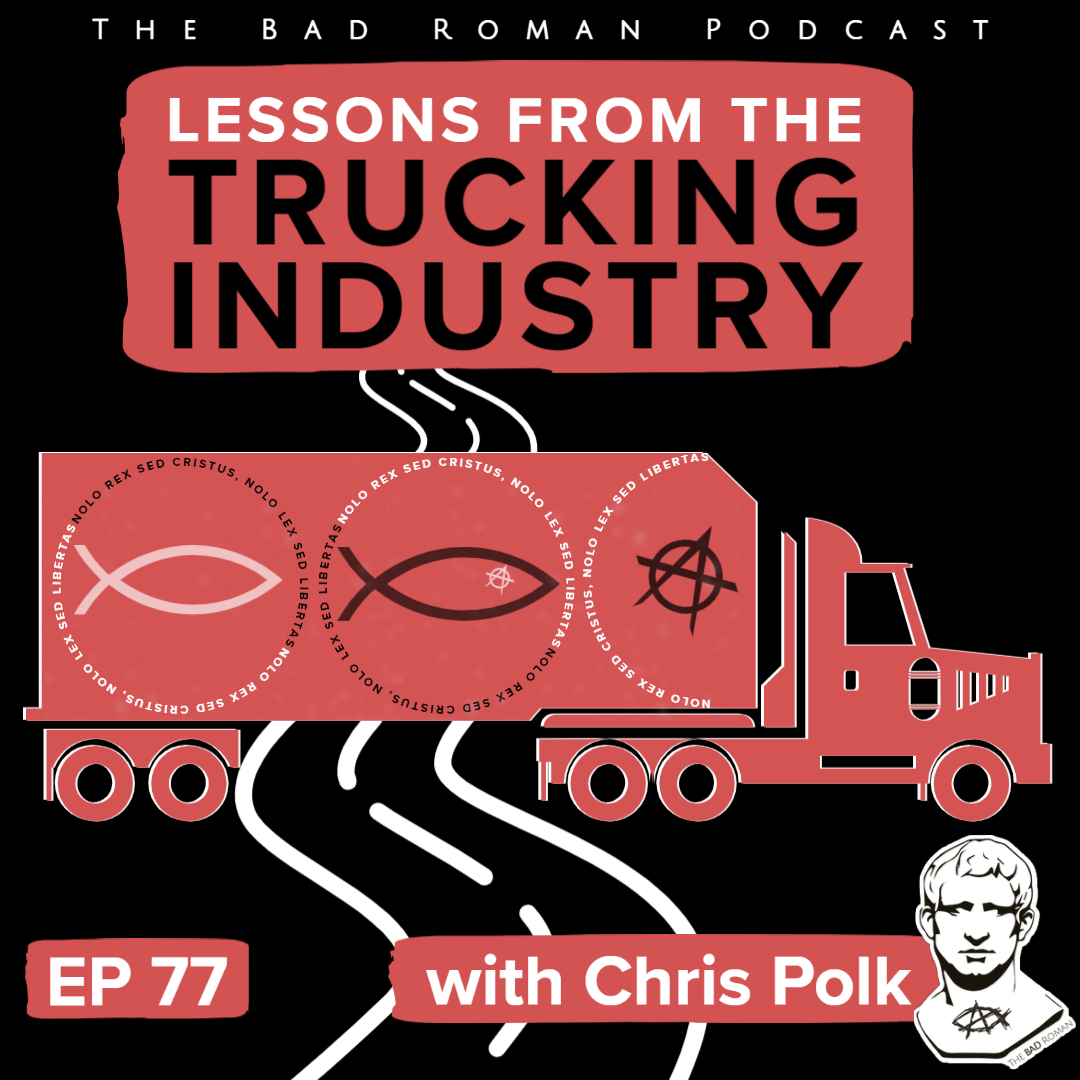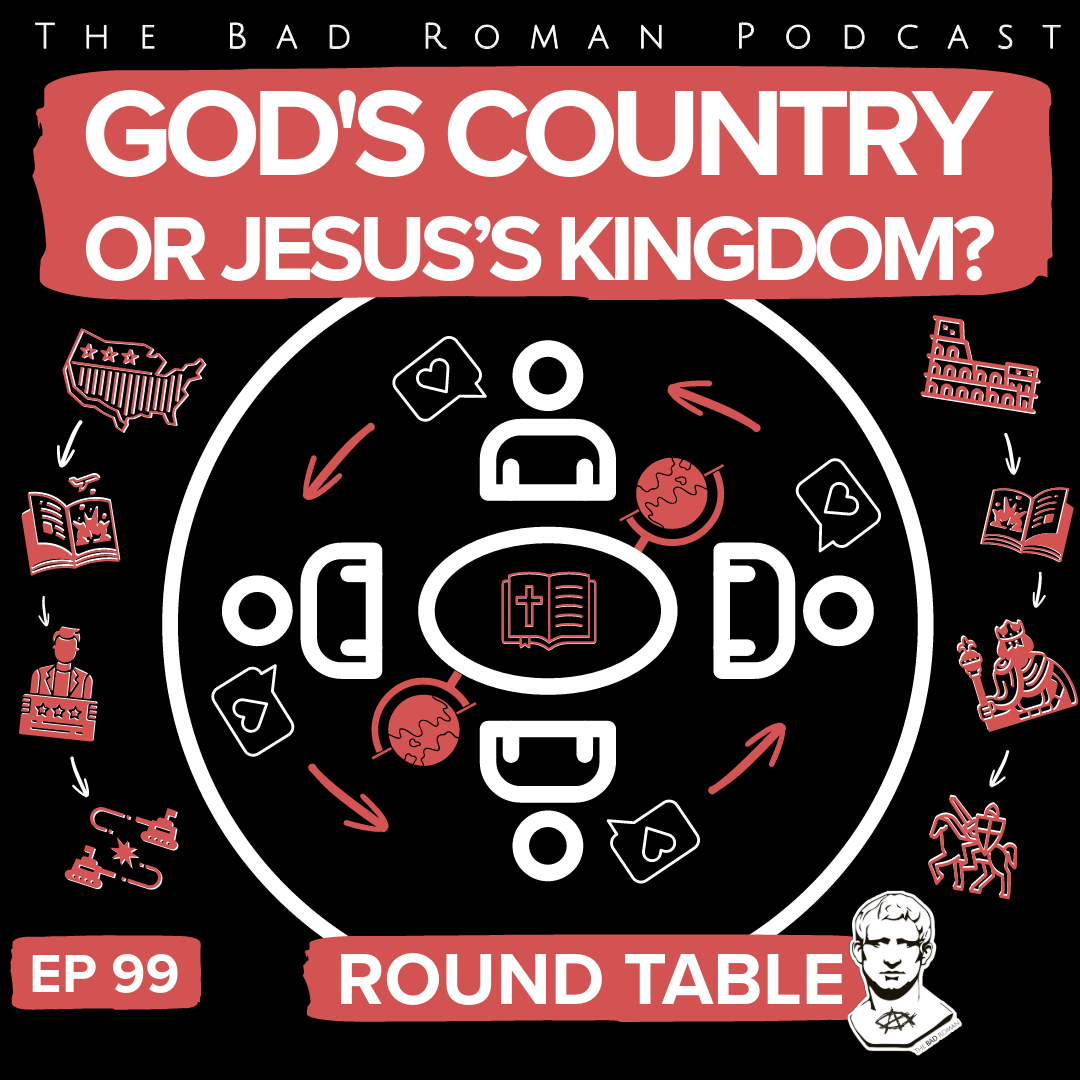About this Episode
What happens when political figures are compared to religious icons? Join us on the Bad Roman Podcast as we explore this provocative question with our special guest, singer-songwriter Josh Nichols. In this episode, we dive into the unsettling comparisons between Donald Trump and Jesus, especially during election season on social media.
Comparing Donald Trump to Jesus is not just misguided—it's deeply problematic. Through his powerful song "God vs MAGA," Josh challenges the troubling idolatry of political figures and sheds light on the toxic rhetoric that equates Trump with Christ. We'll explore how these false comparisons harm our faith and divert our focus from the true essence of Jesus' teachings.
American nationalism has often cloaked itself in the guise of Christianity, but what does this mean for our spiritual integrity? We dissect the disturbing tendency to merge faith with national pride, examining how this threatens to turn patriotism into idolatry. Josh, through his song "God vs MAGA," unpacks the manipulation of religious beliefs by political entities and how such actions lead to a misguided faith in political leaders. Together, we scrutinize the parallels between Trump's portrayal and the biblical figure Barabbas, emphasizing the crucial need to discern truth amidst the political noise.
We highlight the conflict between personal rights and biblical principles of humility and selflessness by unpacking the theological implications and contrasting earthly citizenship with eternal values. Josh’s poignant lyrics, including the line "God doesn't want to make America great again," serve as a stark reminder that our allegiance should be to God's kingdom, not a nation.
Critical thinking and independent thought are crucial in navigating the noise of corporate media and political propaganda. We discuss the liberating power of relinquishing control to faith and how critical thinking fosters confident, independent opinions. From addressing the idolatry of political beliefs to critiquing the hypocrisy within pro-life stances, this episode is a call to elevate our faith above nationalism and strive for a greatness rooted in God's infinite and unconditional love, not a nation-state’s past.
We wrap up with personal reflections and broader societal critiques, highlighting the tension between national identity and spiritual integrity. Join us for this eye-opening dialogue that underscores the ultimate greatness found in God's kingdom and His unconditional love.
Connect with Josh Nichols:
Episode Timestamps:
Timestamps:
(00:00:02) God vs MAGA
Comparison of Donald Trump to Jesus and its implications
Insights from Josh Nichols on political manipulation
Analysis of Trump's portrayal and parallels with Barabbas
Discussion on Josh's song "God vs MAGA"
(00:09:37) Jesus, Nationalism, and Idolatry
Examination of the blending of Christianity and American nationalism
Discussion on the theological implications of national pride
Insights into the idolatry of associating Jesus with American symbols
Analysis of the contrast between earthly citizenship and the kingdom of God
(00:22:52) Navigating Critical Thinking in Society
Importance of critical thinking and relinquishing control to faith
Impact of corporate media on public opinion
Advocacy for independent sources over divisive media channels
How critical thinking fosters confidence in beliefs without alienating others
(00:32:38) America and Christianity
The intersection of faith and patriotism and potential conflicts
Discussion on political beliefs as modern idols
Reference to the song "Clear the Stage" and the dangers of elevating anything above God
Addressing hyperpolitical theology and the importance of understanding
(00:42:49) American Hypocrisy and Eternal Greatness
Tension between American freedom and spiritual constraints
Church responses to government mandates during the COVID-19 pandemic
Examination of political actions versus genuine Christian values
Discussion on hypocrisy within pro-life stances and national identity versus spiritual integrity
(00:51:42) Greatness in God and Music
True greatness in God's kingdom versus making America great again
Role of music in glorifying God and addressing faith issues
Josh's passion for creating a community discussing faith, church hurt, and belief
Emphasis on respectful dialogue within diverse Christian beliefs
(01:02:15) Faith in Modern Society
Challenges of maintaining faith in a rapidly changing world
Influence of social media on religious beliefs and practices
The role of the church in addressing contemporary social issues
Strategies for fostering a supportive faith community
(01:12:03) Balancing Faith and Personal Beliefs
Personal stories of reconciling faith with modern values
The impact of personal experiences on religious views
Navigating disagreements within the church community
Encouragement for open-mindedness and growth in faith
(01:22:48) Future of Christianity in America
Predictions on the evolution of Christianity in a diverse society
The potential for interfaith dialogue and cooperation
The role of young people in shaping the future of the church
Final thoughts on hope and perseverance in faith









































